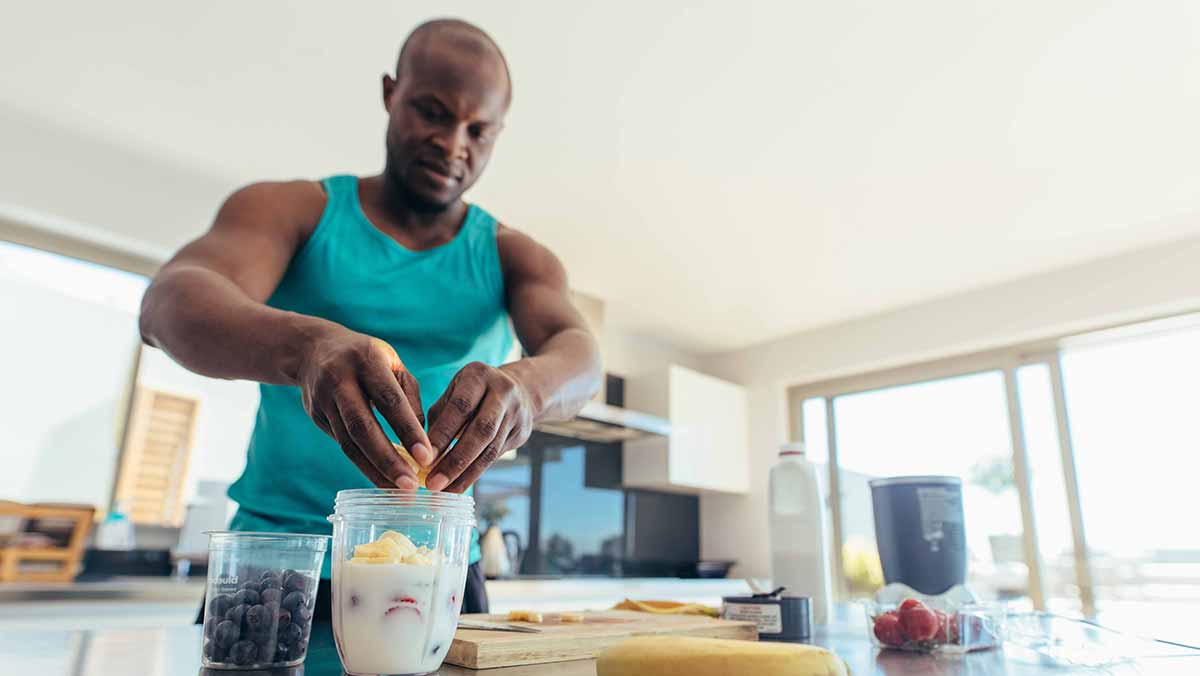When it comes to fitness, some debates are practically eternal. Should you lift heavy for fewer reps or go lighter with more? Is cardio better before or after strength training? And then there’s the question that hits everyone—from gym rookies to seasoned athletes—Should you work out before or after eating?
It’s a topic packed with opinions, and the truth is, both options have their perks. Some people swear by fasted workouts to boost fat loss, while others won’t hit the gym without a pre-workout snack to fuel their performance. So, which is better?
The short answer: it depends. Your ideal approach hinges on your fitness goals, how your body reacts to food, and what kind of workout you’ve got planned. Let’s break it down so you can make the right choice.
How Food Impacts Your Workout

Food and exercise are a dynamic duo. Your body needs fuel to perform, and that fuel comes from food. When you eat, your body converts carbohydrates into glucose, the primary energy source your muscles rely on during a workout.
But it’s not just about what you eat before you train. Post-workout nutrition plays a major role in recovery. Consuming a mix of protein and carbs after exercise helps rebuild muscle fibers, replenish depleted glycogen stores, and prep your body for the next session.
In short, what and when you eat matters, before and after your workout. But since everyone’s goals and bodies are different, there’s no one-size-fits-all answer. Let’s explore both sides so you can make an informed choice that suits your fitness routine.
Why Eating Before a Workout Might Be Better
For many fitness enthusiasts, eating before a workout isn’t just preferred—it’s essential. This is especially true for strength training or high-intensity sessions, where your body demands fuel to perform at its best. A well-timed pre-workout meal can:
- Boost performance – Food provides the energy your muscles need to power through tough reps or long runs.
- Prevent muscle breakdown – Resistance training stresses your muscles, and protein-rich foods supply the amino acids needed to repair and protect them.
- Reduce fatigue – Eating beforehand helps stabilize blood sugar levels, preventing dizziness, energy crashes, or that dreaded mid-workout slump.
But does that mean you need a full meal every time you hit the gym? Not at all. Sometimes, a light snack—a banana with peanut butter, a protein bar, or a smoothie—can do the trick without weighing you down. For endurance athletes, like runners or cyclists, pre-workout nutrition becomes even more important. Studies show that eating carbohydrates 2–4 hours before prolonged exercise can improve stamina and delay fatigue.
So, should you always eat before working out? Ultimately, it depends on your body and your goals. But if you consistently feel drained or lightheaded during exercise, fueling up beforehand might be the game-changer you need.
Why Fasted Workouts Could Work for You


On the flip side, some swear by working out on an empty stomach—a practice known as fasted training. For early risers or those chasing specific fitness goals, this approach can offer some notable benefits:
- Increased fat burning – Research suggests that fasted cardio may prompt your body to tap into fat stores for energy, potentially aiding in fat loss over time.
- Improved insulin sensitivity – Exercising in a fasted state may enhance your body’s insulin response, which is great for metabolic health and glucose regulation.
- Fewer digestive issues – If you’ve ever felt sluggish or bloated mid-workout, skipping that pre-gym snack might offer relief by keeping digestion out of the equation.
That said, fasted workouts aren’t a one-size-fits-all solution. If you’re doing heavy lifting or high-intensity interval training (HIIT), you might find yourself running on empty—literally. Without sufficient fuel, you risk fatigue, dizziness, or underperforming altogether.
Ultimately, whether fasted training is right for you depends on how your body responds. If you feel energized, focused, and strong without eating beforehand, then it might be worth sticking with. But if your workouts suffer, a small pre-workout meal could make all the difference.
The Best Post-Workout Nutrition Plan


No matter where you land on the pre-workout meal debate, post-workout nutrition is non-negotiable. After your session, your body shifts into recovery mode, and what you eat next plays a pivotal role in how well you bounce back.
Here’s why refueling matters:
- Replenish glycogen stores – Your muscles rely on glycogen for energy, and carbs help restore those reserves so you’re ready for your next workout.
- Repair and grow muscle – Protein is key for repairing the tiny tears in muscle fibers caused by exercise, which is how strength and growth happen. Think protein shakes, lean meats, eggs, or Greek yogurt.
- Ease muscle soreness – Anti-inflammatory, nutrient-rich foods can reduce post-exercise aches and help speed up overall recovery.
The sweet spot? Aim to eat a balanced meal or snack that includes both protein and carbohydrates within 30 to 60 minutes post-workout. This window helps maximize muscle repair, reduce fatigue, and refuel your energy stores.
So, When Should You Eat?
So, should you eat before or after your workout? The answer isn’t one-size-fits-all. It depends on your goals, routine, and how your body feels.
If performance, strength, or endurance are your priorities, eating beforehand can help you train harder and longer. On the other hand, if you’re focusing on fat loss or metabolic health, fasted workouts may offer a slight edge.
But there’s one rule everyone should follow: post-workout nutrition is key. Whether you train on an empty stomach or after a meal, refueling your body after exercise is essential for muscle recovery, energy replenishment, and overall progress.
Ultimately, the best approach is trial and error. Experiment with both fed and fasted workouts to see which one aligns with your lifestyle and makes you feel your best. Because at the end of the day, consistency, smart nutrition, and hydration will get you further than any single strategy. So tune into your body, fuel it with intention, and let your fitness goals guide your choices, not the latest trend.
Featured image: Nathan Cowley/Pexels
Medical Disclaimer
All content found on the StyleRave.com website, including text, images, audio, video, and other formats, is created for informational purposes only. The content is not intended to be a substitute for professional medical advice, diagnosis, or treatment. If you think you may have a medical emergency, please call your doctor, go to the nearest hospital, or call 911 immediately, depending on your condition.
For the latest in fashion, lifestyle, and culture, follow us on Instagram @StyleRave_
—Read Also
